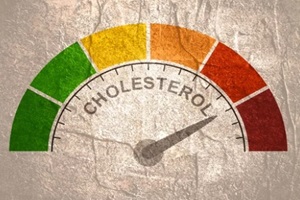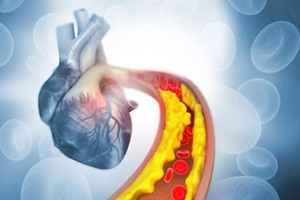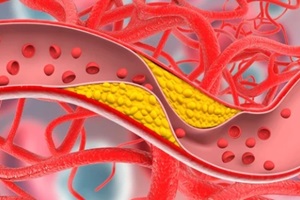 If you have been diagnosed with high cholesterol, your doctor might advise medication and lifestyle changes to help manage your levels. High cholesterol levels significantly increase your risk of developing cardiovascular disease, so getting it under control is important for protecting your health. Luckily, there are a wide range of effective and safe medication options to choose from.
If you have been diagnosed with high cholesterol, your doctor might advise medication and lifestyle changes to help manage your levels. High cholesterol levels significantly increase your risk of developing cardiovascular disease, so getting it under control is important for protecting your health. Luckily, there are a wide range of effective and safe medication options to choose from.
Let’s explore some of the main categories of cholesterol-lowering medications.
The Powerful Effects of Statins
Statins are one of the most frequently used medications in treating elevated cholesterol levels. Statins function by inhibiting a liver enzyme that is part of the cholesterol production process. This results in your liver eliminating cholesterol from your blood.
Statins are very effective at lowering LDL (or “bad”) cholesterol levels while also reducing triglycerides and raising HDL (or “good”) cholesterol to a smaller degree.
Some of the most widely used statin medications include simvastatin (Zocor), rosuvastatin (Crestor), atorvastatin (Lipitor), and pravastatin (Pravachol).
Studies show statins can reduce the level of LDL cholesterol by as much as 60% in some people. They are the first-line medication recommended for most people with increased cholesterol levels.
Of course, even generally safe medications can cause side effects for some. Muscle pain or weakness are the most frequently registered side effects of statins. However, research indicates this may be largely due to a placebo effect.
In clinical trials where participants were not aware if they were on a placebo or an actual statin, muscle pain occurred at similar rates in both groups. This suggests the expectation of the side effect makes it more likely to occur.
Cholesterol Absorption Inhibitors
 Besides statins, your doctor might also recommend a cholesterol absorption inhibitor, typically in combination with a statin. These medications limit how much cholesterol you absorb from the food you ingest.
Besides statins, your doctor might also recommend a cholesterol absorption inhibitor, typically in combination with a statin. These medications limit how much cholesterol you absorb from the food you ingest.
The most common medication in this class is ezetimibe (Zetia), which is often prescribed alongside statin therapy. Ezetimibe reduces the amount of LDL cholesterol being absorbed in your intestines.
When added to statin treatment, it can lower LDL cholesterol levels by an extra 25%. As with statins, it also leads to small increases in HDL cholesterol.
Ezetimibe is associated with relatively few side effects, most commonly stomach pain, diarrhea, or fatigue. It may also cause muscle soreness in some individuals. However, it generally does not cause the muscle problems associated with statins and can be safely taken together with them.
Powerful PCSK9 Inhibitors for Cholesterol Reduction
PCSK9 inhibitors are a newer class of injectable cholesterol medications that dramatically lower LDL cholesterol levels by up to 70%. They work by inhibiting PCSK9, a protein that limits your body’s ability to remove LDL cholesterol. By inhibiting this protein, more LDL receptors become available to clear LDL from your blood.
Currently, two PCSK9 inhibitors are approved: alirocumab (Praluent) and evolocumab (Repatha). Due to their high cost, these medications are typically only prescribed for people with extremely elevated cholesterol levels who need significant additional lowering despite statin treatment or for those unable to tolerate other cholesterol medications.
PCSK9 inhibitors require regular self-injections — often every two or four weeks. Side effects are minimal but can include injection site reactions, itching, or swelling. They can be used safely with other cholesterol medications.
Bile Acid Sequestrants
Bile acid sequestrants are older cholesterol medications that bind to bile acids in your digestive tract to remove cholesterol from your blood. Some examples include colesevelam (Welchol), colestipol (Colestid), and cholestyramine (Prevalite).
They mainly decrease LDL cholesterol with a smaller boost to HDL levels. However, they are not as potent as statins. They can lower LDL cholesterol by 15-30% on their own but are more often prescribed together with statins for enhanced effects.
The main side effects of bile acid sequestrants are gastrointestinal issues such as constipation, bloating, nausea, and stomach pain.
Due to the high frequency of these effects, they are not typically a first-choice medication today compared to statins. However, they remain an option for some individuals who need additional cholesterol-lowering or do not tolerate other drugs.
Combination Therapies Offer Dual Action
Rather than a single medication, your doctor may prescribe two cholesterol drugs together. This combination therapy approach takes advantage of the unique effects of different medications. Popular combination options include:
 Ezetimibe plus a statin: This is perhaps the most common combination. It enhances LDL cholesterol reduction and provides dual benefits for raising HDL.
Ezetimibe plus a statin: This is perhaps the most common combination. It enhances LDL cholesterol reduction and provides dual benefits for raising HDL.- Amlodipine-atorvastatin (Caduet): This combo medication contains both a statin and a blood pressure drug. It lowers LDL while also reducing blood pressure.
- Bempedoic acid plus ezetimibe (Nexlizet): This newly approved treatment combines the LDL-lowering effects of a new drug called bempedoic acid with ezetimibe for enhanced cholesterol reductions.
Combinations are often well tolerated, as lower doses of individual medications can be used to reduce side effects. As always, let your doctor know if any symptoms develop.
The Key to Controlling Cholesterol: A Comprehensive Approach with Imperial Center Family Medicine
Managing high cholesterol often requires a multi-pronged strategy of medication plus lifestyle adjustments for optimal success. By exploring cholesterol drug options with your doctor, you can develop the best treatment plan for your needs.
The wide range of available medications, from statins to cholesterol absorption inhibitors and more, provides flexibility to target unhealthy cholesterol levels.
Combined with heart-healthy habits, medication can get your cholesterol under control and allow you to live your healthiest life.
When it comes to your heart health, Imperial Center Family Medicine has the expertise to help develop a customized and comprehensive cholesterol management approach for you. Contact us today at 919-873-4437 or online, and let’s get started on developing a solution to lower your cholesterol.
